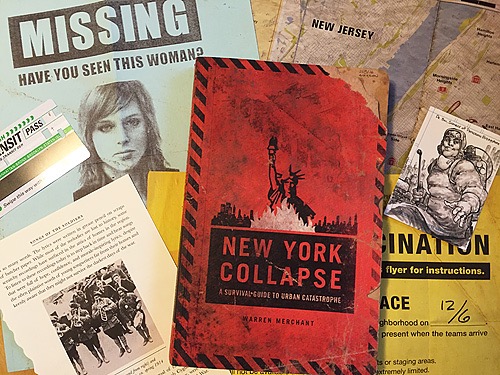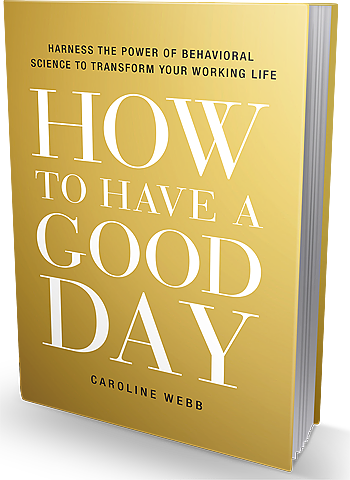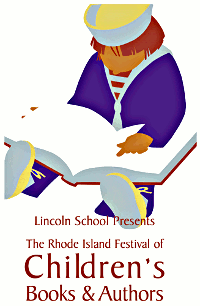"New York Collapse" brings artifactual richness to "The Division"
By John McDaid | Tuesday, 15 March 2016
If you've been playing "The Division" since it dropped a week ago, you're probably familiar with the challenging environment of a New York City decimated by an engineered virus, quarantined from the outside world, and degenerated to lawlessness. The companion book, called "New York Collapse," offers a rich artifactual journey through the city's descent into chaos and provides tantalizing hints and lore that will enrich your gaming experience.
Written by science fiction author Alex Irvine and produced by Melcher Media, the conceit of the book is that it's an (in-universe) survival guide.
The text is ostensibly written by a quasi-spook named Warren Merchant who seems to know far too much about the particular challenges that an engineered virus — and its paper money vector — would bring to New York. On this level, the text functions as robust, 170-page guide to surviving an urban apocalypse through preparation (what to keep in your "Go Bag"), analyzing risks ("Avoid high-rises"), finding or improvising essentials (did you know you can make a solar water purifying still with a couple of plastic containers and some tubing), and urban tactics (how and where to cache materials you may need later.)
On this level, it's pretty compelling — nothing new if you're a pepper, but some good pointers, with a focus on Manhattan Island. (Near Spuyten Duyvil would be the best place to try a raft, but it's almost certain to be guarded, Merchant warns.)
But where the book really shines is in the annotations, which recount the last month since the spread of the pandemic "Dollar Bug" from the point of view of one April Kelleher. Her late husband, Bill, was a biotech researcher killed early in the pandemic under mysterious circumstances. April is trapped on Manhattan Island by the quarantine, and is forced to learn to survive, using Merchant's book. She scribbles in the margins in different colors of ink, as she finds and loses writing implements, which gives the text a recursive, palimpsestic feel (and also serves to provide chronological pegs for her observations).
And it's a pretty grim story, from the death of her husband, her struggles to find safe places to stay, her efforts to avoid the roving gangs which begin to crop up as civilization decays (the Cleaners, Rikers, and LMB you'll be familiar with from the game), and her quest to piece together an emerging mystery: Who is Warren Merchant, really? How did he know about the Dollar Bug? And why does he seem to be planting clues in the text for April to find?
You pretty soon find yourself as hooked as April, scanning the pages for embedded puzzles and clues. Some of them are obvious (odd things in illustrations) and some are subtle (Nah, Merchant is not going to make a mistake in how much a gallon of water weighs). After a couple of hours, you'll find yourself looking for patterns in capital letters and wondering if that stray green dot on page 120 is just a printing artifact.
In addition to the faux-distressed paperback guide, the package contains an array of stuffed-in objects: a map (with creases expertly printed to simulate wear and an enigmatic clue scrawled in marker), a "missing" poster of April (with a suspect phone number), a hand-drawn "trading card" of her husband, a torn-out page of a book on WWI Dutch musicians (yes, you'll figure out why), and a plastic transit fare card with holes strategically punched in the surface. (You'll need find where to put the sticky note first to figure out how to use this decoder. And, yes, it does point to something in the game.)
I'm a sucker for artifactual fictions, and this one is extremely well done, both in the multiple textual layers, and also in the high production values of the whole package. It's a captivating read with fun puzzles and an overall experience that adds significant depth to the time you're undoubtedly spending in the game itself. Highly recommended.
Full disclosure: I attended the Clarion Workshop with Alex in 1993. I purchased this book and received nothing in exchange for this review.
 This book should suck. Really. The title clearly over-promises (“How To Have a Good Day,” indeed) and the text attempts three of the most difficult non-fiction high-wire acts: popularizing science without making stupid errors, presenting business advice that doesn’t trigger your bullshit detector, and giving self-help tips that don’t fall off into either banality or featherbrained woo.
This book should suck. Really. The title clearly over-promises (“How To Have a Good Day,” indeed) and the text attempts three of the most difficult non-fiction high-wire acts: popularizing science without making stupid errors, presenting business advice that doesn’t trigger your bullshit detector, and giving self-help tips that don’t fall off into either banality or featherbrained woo.